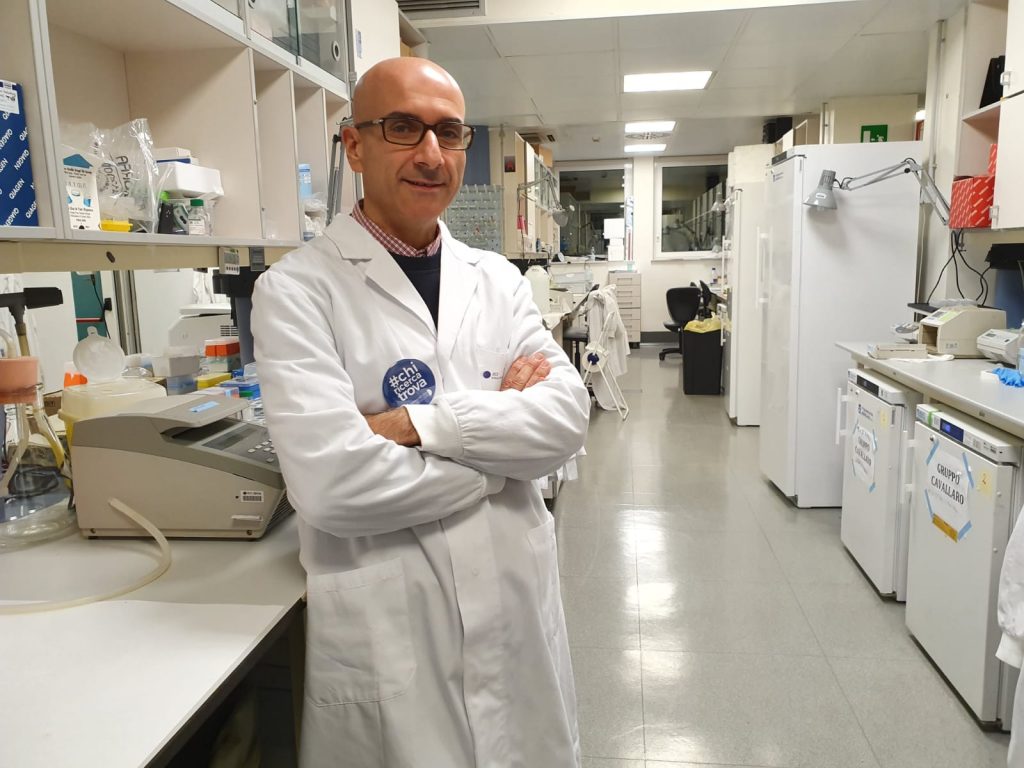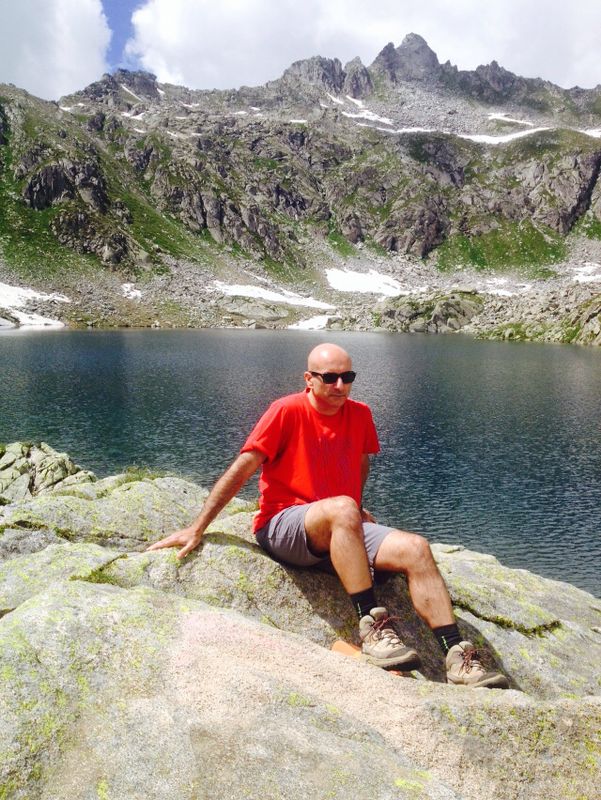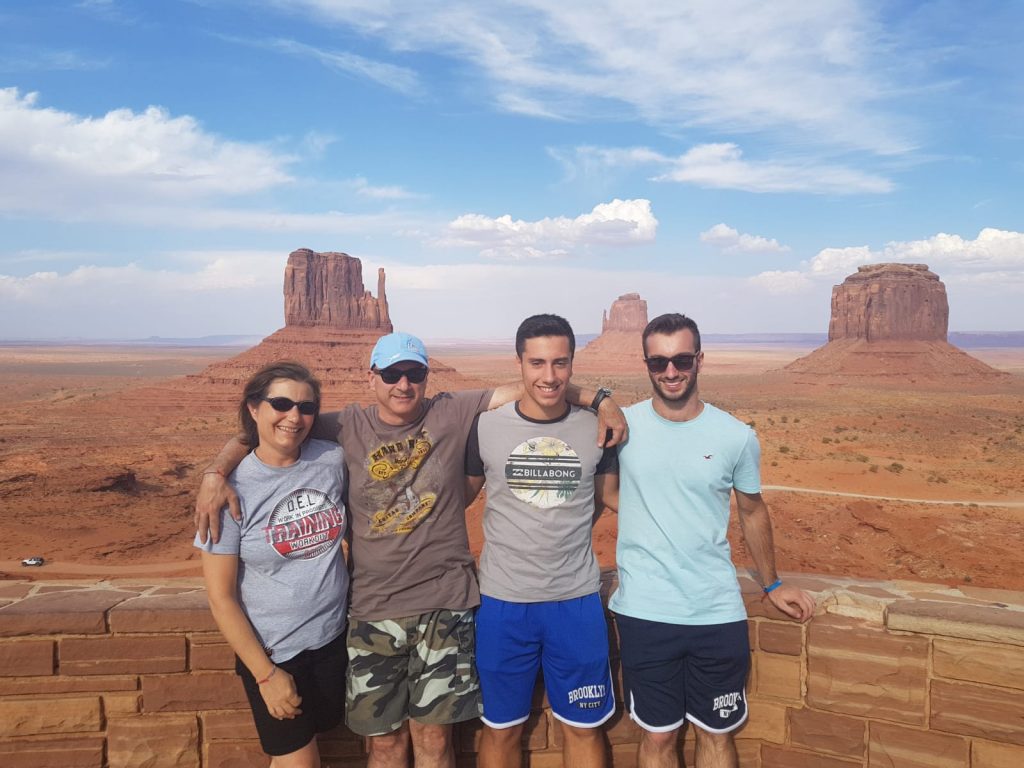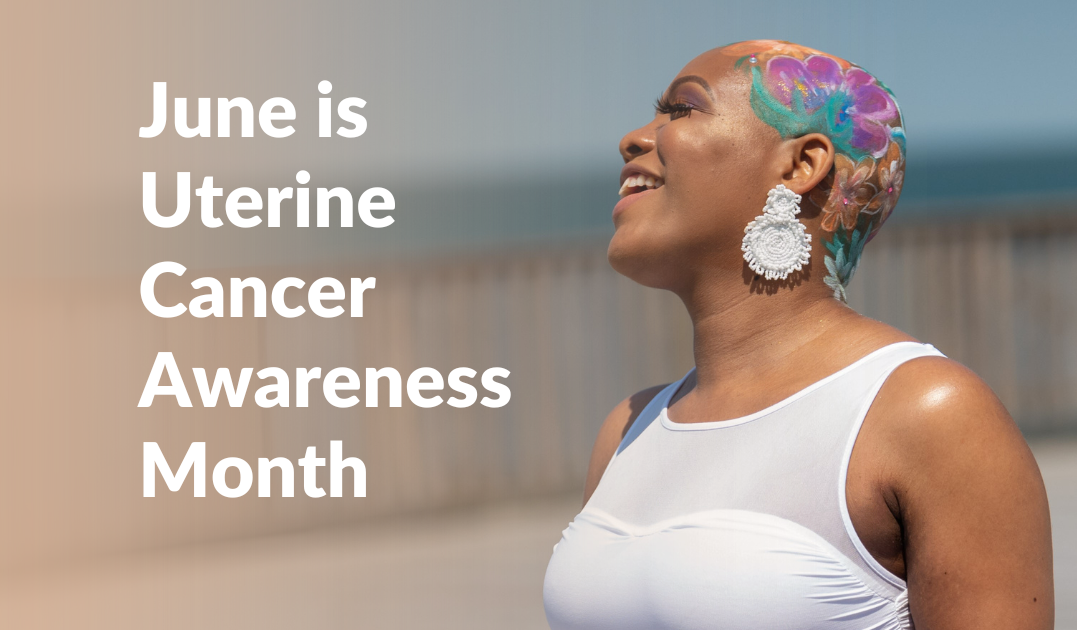Cockroaches after a nuclear war.
That is really the best way to understand what Dr. Ugo Cavallaro, a cell biologist and biochemist, is working on in his lab in Milan, Italy. He is trying to understand why an ovarian cancer tumor, which is successfully removed along with surrounding tissue, can manifest itself again.
“This happens because there are cells, termed cancer stem cells, that survive any kind of treatment, and at some point, for some unknown reasons,” Ugo said, “these cells wake up and reinitiate the tumor.”
And to make matters even worse, these cells are then no longer responsive to chemotherapy. But Ugo and his team are seeking to understand the molecules, how they function, in order to devise strategies to interfere with that functioning. The trick, Ugo explained, is to work directly with patients, rather than rely on cell lines that may have been harvested decades ago and propagated in the lab.

“Because whatever we learn from cancer stem cells from cell lines,” Ugo said, “is often very different from what is actually happening in real life, in the patient.”
Creating a bio bank
Ugo is the Director of the Unit of Gynecological Oncology Research at the European Institute of Oncology, Milan. He works directly with clinicians, allowing him access to actual patient tissue samples. He stressed that these samples are removed anyway as part of the ovarian cancer surgery, when most of the abdominal tissue is removed, and patients give their informed consent for Ugo and his team to study their own disease.
“This is important. We are not asking for extra tissues from the patient,” Ugo said.
Ugo and his team are using their OCRA grant to create in a petri dish, using tissue samples from the patients, the microenvironment that allows the tumor cells to develop and thrive. This is crucial because these healthy normal tissues modify the cancer cells. And the cancer cells modulate and modify the surrounding tissues. This “dialogue” is likely key for the tumor-initiating properties of ovarian cancer stem cells and, therefore, needs to be understood.
“We want to learn things that are real, not for the lab, but for the patients,” Ugo said. “Because if I find something that is very efficient in killing cancer stem cells from a cell line, it might be completely useless in the patient.”
Early inspiration
Ugo credits his interest in research to a high school science teacher. “She was, to my memory, an old lady, but with a great passion for science, and a great way to transmit this passion,” Ugo said.
“I don’t remember having learned outstanding concepts from her,” he said. “But the way she was actually trying to understand how life works, it was very fascinating.”
Ugo shared her desire for this understanding and wanted to become a biologist, not a doctor. As a teen, he asked for a microscope for his birthday. Now, being able to do this research in the context of a relevant problem to a patient is even more satisfying.
Staying motivated
Ugo explains that 90% of the work most researchers do produces negative results. It’s the remaining 10% that keeps them motivated.
“That 90% is a failure,” he said. “But it’s by no means useless.”
Without that 90%, he explained, you would never learn. Through those negative results, he and his team will understand that the question they may have been asking is wrong. Or maybe it was the right question, just asked in the wrong way.
“But to look at my group’s eyes when they find out a question was correct, their hypothesis was true, and the experiment works,” Ugo reflected, “I would say that’s very motivating.”

Ugo explained that being a scientist in Italy is not easy. Grants are very difficult to come by, the salaries are not good, and careers are very hard to establish. There aren’t nearly as many opportunities as there are in the United States.
“You don’t do this job for the money, or even the career,” Ugo said. “You have to do it because you love it. Because you want to get up every morning and be happy to go to the lab or to the patients.”
Learning from patients
Ugo will never give advice to people suffering from ovarian cancer, or any disease.
“I would rather accept advice from them. We can only learn from patients,” he said. And the biggest lesson he has learned is dignity. Unfortunately, Ugo learned this not as a doctor, but as a parent of a terminally ill child. Ugo lost his daughter to an unnamed chromosomal syndrome when she was nearly six years old. He and his wife spent many years in hospitals, with other parents dealing with their own heartbreaks.
“I still remember parents with dramatically sick kids, and they were often smiling,” Ugo said. “I found this almost unnatural. I was like, ‘you should be angry all the time!’ Still, I saw these parents going through this tragedy, and you learn to understand what the real important things are.”
Ugo believes that patients, his daughter included, are really the only people who actually know what these more important things in life are, and who are practiced in appreciating them much more than most people do.
The most important thing in Ugo’s life, aside from trying to find a cure for a disease that “deserves much more attention than it has,” is his family – his wife and two sons, who are both embarking on the study of medicine themselves. The advice he would give to his sons is the same advice he gives to those in his lab.

“Be perseverant. Do not give up. Set objectives; don’t be vague about what you want to do,” Ugo said. “Don’t set a low profile because of fear. Be ambitious.”
Ugo, all of us at OCRA are grateful for your perseverance.


